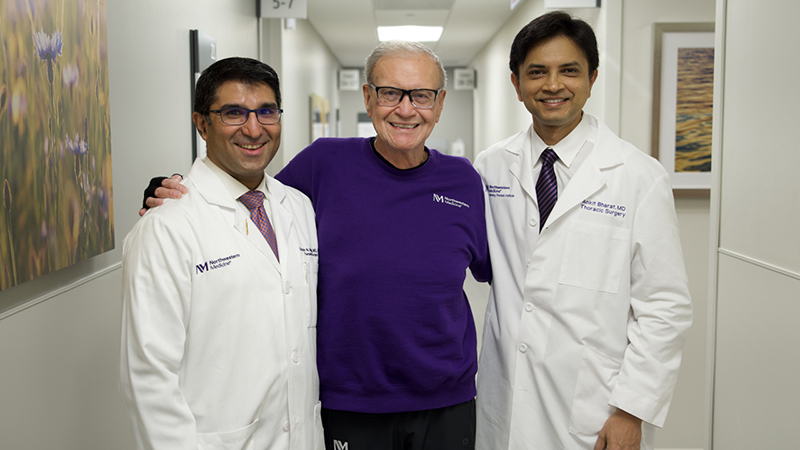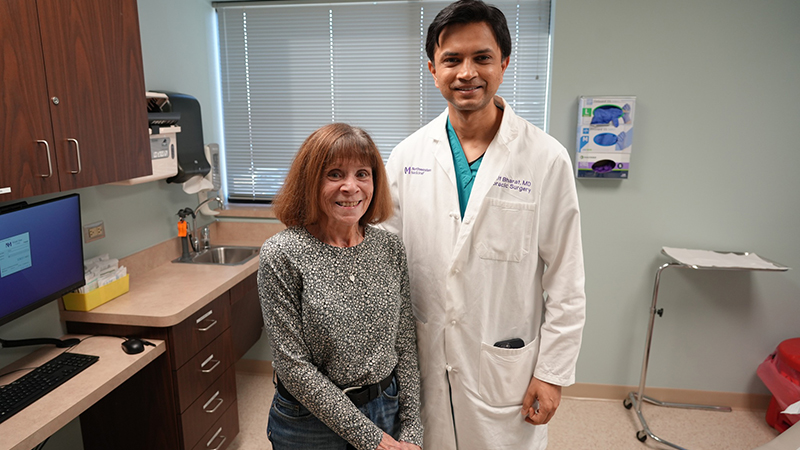Overview
What Is Liver Transplantation?
Receiving or donating a liver is a life‐changing experience. At Northwestern Medicine Organ Transplant Center, we support you every step of the way—with leading clinical research, innovation and compassionate care.
Liver transplantation surgery involves the replacement of a diseased liver with a healthy liver from a deceased organ donor or part of a liver from a living donor. During the surgery, your diseased liver is removed through an incision in the upper abdomen. The donor liver is put in place and attached to your blood vessels and bile ducts. The operation may take up to 12 hours and requires a large amount of transfused blood.
The function of the liver is to:
- Store vitamins, minerals and sugar
- Make bile, a liquid that aids in digesting fat and proteins and absorbing vitamins A, D, E and K
- Metabolize (break down) carbohydrates to produce energy
- Produce the protein that regulates blood clotting
- Remove harmful bacteria from the blood
- Remove toxins from the blood, such as those from medication or alcohol
When the liver stops functioning—known as liver failure—treatment is needed. A team of specialists* will determine if you are a good candidate for liver transplantation. If so, you will be registered with the United Network for Organ Sharing (UNOS) to find a donor liver.
Explore our transplant resources. These include patient education materials, support groups and more.




